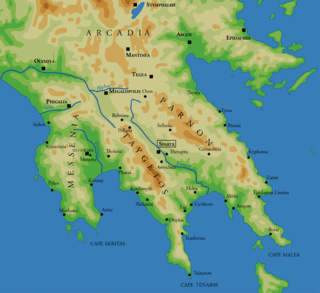 W
WThe Siege of Athens and Piraeus was a siege of the First Mithridatic War that took place from Autumn of 87 BC to the Spring and Summer of 86 BC. The battle was fought between the forces of the Roman Republic, commanded by Lucius Cornelius Sulla Felix on the one hand, and the forces of the Kingdom of Pontus and the Athenian City-State on the other. The Greek Pontian forces were commanded by Aristion and Archelaus.
 W
WThe Siege of Bactra was a siege of the Hellenistic period that lasted from 208 to 206 BC. It was a siege of the city of Bactra by the Seleucid Empire after they defeated the Greco-Bactrians at the Battle of the Arius.
 W
WThe siege of Rhodes in 305–304 BC was one of the most notable sieges of antiquity, when Demetrius Poliorcetes, son of Antigonus I, besieged Rhodes in an attempt to make it abandon its neutrality and end its close relationship with Ptolemy I.
 W
WThe naval Battle of Salamis in 306 BC took place off Salamis, Cyprus between the fleets of Ptolemy I of Egypt and Antigonus I Monophthalmus, two of the Diadochi, the generals who, after the death of Alexander the Great, fought each other for control of his empire.
 W
WThe siege of Cyzicus took place in 73 BC between the armies of Mithridates VI of Pontus and the Roman-allied citizens of Cyzicus in Mysia and Roman Republican forces under Lucius Licinius Lucullus. It was in fact a siege and a counter-siege. It ended in a decisive Roman victory.
 W
WThe siege of Gythium was fought in 195 BC between Sparta and the coalition of Rome, Rhodes, the Achaean League, and Pergamum. As the port of Gythium was an important Spartan base, the allies decided to capture it before they advanced inland to Sparta. The Romans and the Achaeans were joined outside the city by the Pergamese and Rhodian fleets. The Spartans held out, but one of the joint commanders, Dexagoridas, decided to surrender the city to the Roman legate. When Gorgopas, the other commander, found out, he killed Dexagoridas and took sole command of the city. After Dexagoridas' murder, the Spartans held out more vigorously. However, Titus Quinctius Flamininus of the allied forces arrived with 4,000 more men and the Spartans decided to surrender the city on the condition that the garrison could leave unharmed. The result of this siege forced Nabis, the tyrant of Sparta, to abandon the surrounding land and withdraw to the city of Sparta. Later that year, Sparta capitulated to the allies.
 W
WThe siege of Sparta took place in 272 BC and was a battle fought between Epirus, led by King Pyrrhus, and an alliance consisting of Sparta, under the command of King Areus I and his heir Acrotatus, and Macedon. The battle was fought at Sparta and ended in a Spartan-Macedonian victory.